 AMERICA
AMERICA In Which We Try To Simply Survive The Donner Party
 Saturday, August 29, 2009 at 11:40AM
Saturday, August 29, 2009 at 11:40AM 
Stranded
by ALEX CARNEVALE
Being stranded somewhere is my deepest fear. My nightmares come back after days away, and awakening from them is no easy task. I often have to strain to separate my dreaming life from my waking life. Once as a child I was left alone in a department store. Another time my house was perilously empty, and I heard a creaking on the stairs. No ghost or haint haunts these lonely places.

David Mamet's The Edge, otherwise a mad satire of what getting really lost feels like, keeps coming back to me. Trying to keep his only companion's mind from exploding after they miss their only chance at rescue, Anthony Hopkins tells him that most people die of shame in the woods. American history is riddled with these sorts of ordeals, because man could truly be farthest away from the very thing he needed most.
During the trek of the Donner Party, snow descended over all, and in the storm the mules ran away, not recovered or slaughtered for meat. At that moment, the opportunity was there, for certain, to cease being a human and become something else entirely.
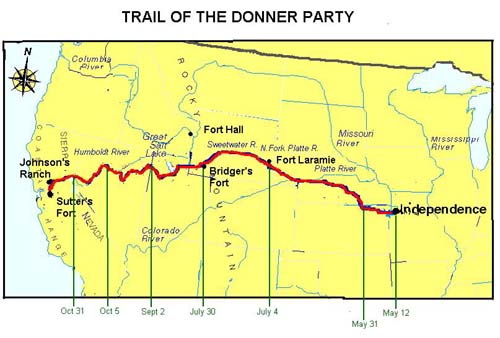
It may not be commonly known that the Donner Party originated in Illinois, the state of our president. It is always great when historical events attain a new subtext in retrospect through the use of irony.

As C.F. McGlashan put it in 1897:
The delirium preceding death by starvation, is full of strange phantasies. Visions of plenty, of comfort, of elegance, flit ever before the fast-dimming eyes. The final twilight of death is a brief semi-consciousness in which the dying one frequently repeats his weird dreams. Half rising from his snowy couch, pointing upward, one of the death-stricken at Donner Lake may have said, with tremulous voice: Look! there, just above us, is a beautiful house. It is of costliest walnut, inlaid with laurel and ebony, and is resplendent with burnished silver. Magnificent in all its apartments, it is furnished like a palace. It is rich with costly cushions, elegant tapestries, dazzling mirrors; its floor is covered with Oriental carpets, its ceiling with artistic frescoings; downy cushions invite the weary to repose. It is filled with people who are chatting, laughing, and singing, joyous and care-free. There is an abundance of warmth, and rare viands, and sparkling wines. Suspended among the storm-clouds, it is flying along the face of the precipice at a marvelous speed. Flying? no! it has wheels and is gliding along on a smooth, steel pathway. It is sheltered from the wind and snow by large beams and huge posts, which are bolted to the cliffs with heavy, iron rods. The avalanches, with their burden of earth and rocks and crushed pines, sweep harmlessly above this beautiful house and its happy inmates. It is drawn by neither oxen nor horses, but by a fiery, hot-breathed monster, with iron limbs and thews of, steel. The mountain trembles beneath his tread, and the rocks for miles re-echo his roar.

If such a vision was related, it but indicates, prophetically, the progress of a few years. California's history is replete with tragic, startling events. These events are the landmarks by which its advancement is traced. One of the most mournful of these is recorded in this work--a work intended as a contribution, not to the literature, but to the history of the State. More thrilling than romance, more terrible than fiction, the sufferings of the Donner Party form a bold contrast to the joys of pleasure-seekers who to-day look down upon the lake from the windows of silver palace cars.

The scenes of horror and despair which transpired in the snowy Sierra in the winter of 1846-7, need no exaggeration, no embellishment. From all the works heretofore published, from over one thousand letters received from the survivors, from ample manuscript, and from personal interviews with the most important actors in the tragedy, the facts have been carefully compiled. Neither time, pains, nor expense have been spared in ferreting out the truth. New and fragmentary versions of the sad story have appeared almost every year since the unfortunate occurrence. To forever supplant these distorted and fabulous reports — which have usually been sensational new articles — the survivors have deemed it wise to contribute the truth. The truth is sufficiently terrible.

McGlashan summed up his prologue with the following:
Where conflicting accounts of particular scenes or occurrences have been contributed, every effort has been made to render them harmonious and reconcilable. With justice, with impartiality, and with strict adherence to what appeared truthful and reliable, the book has been written. It is an honest effort toward the truth, and as such is given to the world.
 Lewis Keseberg was a European immigrant who had the bad luck to await Mrs. Donner just before she died. She made him promise to see her girls out of the crisis alive. For receiving these last wishes, Keseberg was accused of her murder and harassed by others in the group. McGlashan comes to no certain conclusion about Keseberg's culpability. His is a most unreliable narration, to put it mildly.
Lewis Keseberg was a European immigrant who had the bad luck to await Mrs. Donner just before she died. She made him promise to see her girls out of the crisis alive. For receiving these last wishes, Keseberg was accused of her murder and harassed by others in the group. McGlashan comes to no certain conclusion about Keseberg's culpability. His is a most unreliable narration, to put it mildly.
Let the God to whom Lewis Keseberg appeals be his judge. It is not the part of this book to condemn or acquit him. Most of the fourth relief party have already gone before the bar at which Keseberg asks to be tried. Capt. Tucker is about the only available witness, and his testimony is far more lenient than the rumors and falsehoods usually published.
If Keseberg be guilty of any or of all crimes, it will presently be seen that the most revengeful being on earth could not ask that another drop be added to his cup of bitterness. His statement continues:
These men treated me with the greatest unkindness. Mr. Tucker was the only one who took my part or befriended me. When they started over the mountains, each man carried two bales of goods. They had silks, calicoes, and delames from the Donners, and other articles of great value. Each man would carry one bundle a little way, lay it down, and come back and get the other bundle. In this way they passed over the snow three times. I could not keep up with them because I was so weak, but managed to come up to their camp every night. One day I was dragging myself slowly along behind the party, when I came to a place which had evidently been used as a camping-ground by some of the previous parties. Feeling very tired, I thought it would be a good place to make some coffee. Kindling a fire, I filled my coffee-pot with fresh snow and sat waiting for it to melt and get hot. Happening to cast my eyes carelessly around, I discovered a little piece of calico protruding from the snow. Half thoughtlessly, half out of idle curiosity, I caught hold of the cloth, and finding it did not come readily, I gave it a strong pull. I had in my hands the body of my dead child Ada! She had been buried in the snow, which, melting down, had disclosed a portion of her clothing. I thought I should go frantic! It was the first intimation I had of her death, and it came with such a shock!
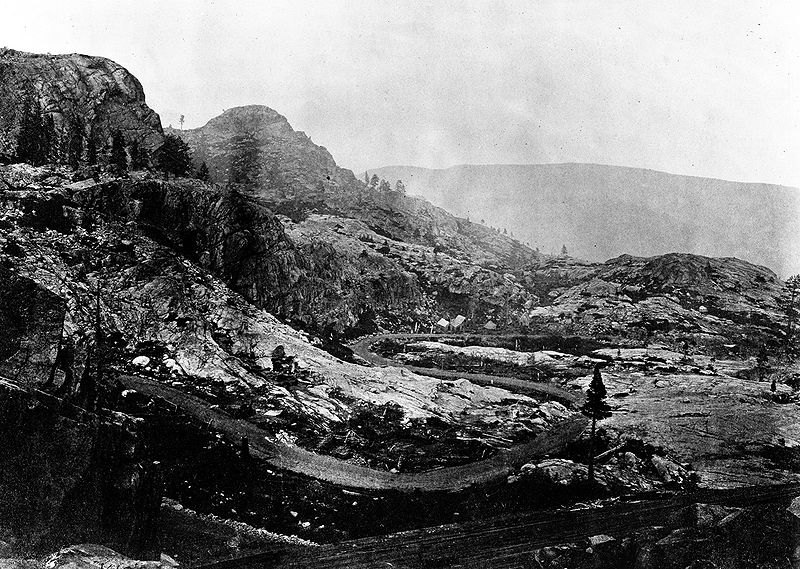
Just as we were getting out of the snow, I happened to be sitting in camp alone one afternoon. The men were hunting, or attending to their goods. I was congratulating myself upon my escape from the mountains, when I was startled by a snuffling, growling noise, and looking up, I saw a large grizzly bear only a few feet away. I knew I was too weak to attempt to escape, and so remained where I sat, expecting every moment he would devour me. Suddenly there was the report of a gun, and the bear fell dead. Mr. Foster had discovered the animal, and slipping up close to camp, had killed it.
When the party arrived at Sutter's Fort, they took no pains to conceal their feelings toward Keseberg. Some of the men openly accused him of Mrs. Donner's murder.
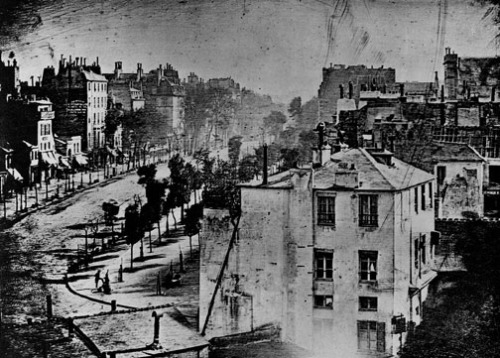
Such drama is more fit for cinema than Tom Hanks batting a volleyball around while waiting to be rescued, surely. As you read the McGlashan's account of the Donner Party, it's hard for your mind to wrap itself around why some of the party immediately succumbed, and others lasted longer. Jared Diamond tries to explain away the ponderous mystery of why some of them died, and some of them lived:
First, men are bigger than women. Typical body weights for the world as a whole are about 140 pounds for men and only 120 pounds for women. Hence, even while lying down and doing nothing, men need more food to support their basal metabolism. They also need more energy than women do for equivalent physical activity.
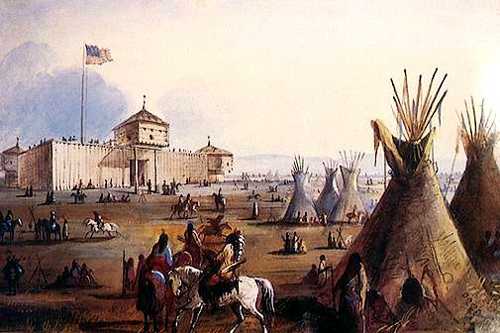
Even for sedentary people, the typical metabolic rate for an average-size woman is 25 percent lower than an average-size man’s. Under conditions of cold temperatures and heavy physical activity, such as were faced by the Donner Party men when doing the backbreaking work of cutting the wagon road or hunting for food, men’s metabolic rates can be double those of women.

To top it all off, women have more fat reserves than men: fat makes up 22 percent of the body weight of an average nonobese, well- nourished woman, but only 16 percent of a similar man. More of the man’s weight is instead made up of muscle, which gets burned up much more quickly than does fat. Thus, when there simply was no more food left, the Donner Party men burned up their body reserves much faster than did the women. Furthermore, much of women’s fat is distributed under the skin and acts as heat insulation, so that they can withstand cold temperatures better than men can. Women don’t have to raise their metabolic rate to stay warm as soon as men do.
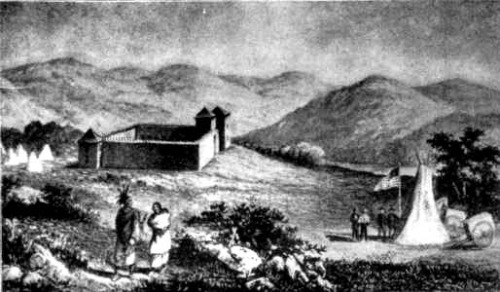
These physiological factors easily surpass male murderousness in accounting for all those extra male deaths in the Donner Party. Indeed, a microcosm of the whole disaster was the escape attempt by 15 people on snowshoes, lasting 33 days in midwinter. Of the ten men who set out, two were murdered by another man, six starved or froze to death, and only two survived. Not a single one of the five women with them died.
Alex Carnevale is the editor of This Recording. He tumbls here.
 wave machines photos by simon green"The Line" — Wave Machines (mp3)
wave machines photos by simon green"The Line" — Wave Machines (mp3)
"I Joined A Union" — Wave Machines (mp3)
"Dead Horses" — Wave Machines (mp3)
"The Greatest Escape" — Wave Machines (mp3)

 alex carnevale,
alex carnevale,  donner party
donner party 




























